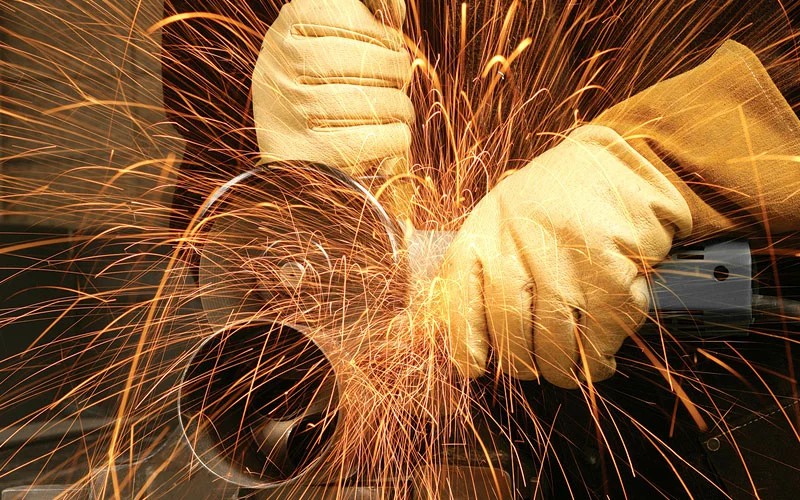Eliminating Dangers: Comprehensive Guide to Abrasive Wheels Safety Through Training
Abrasive wheels are vital tools in various manufacturing and maintenance applications, but their use carries significant safety risks. In workplaces ranging from industrial workshops to construction sites, the improper handling of these tools can lead to severe injuries, including lacerations, burns, and even fatalities. Understanding these risks and implementing effective training programs is crucial for ensuring a safe working environment.
Key Safety Risks of Using Abrasive Wheels
Abrasive wheels can be hazardous if not used correctly. Here are some common safety risks associated with their use:
- Wheel Breakage: Abrasive wheels are prone to breakage, especially if they are damaged or misused. A failing wheel can shatter, sending sharp fragments flying at high speeds.
- Improper Mounting: Incorrect installation or mounting of the wheel can lead to instability and potential accidents. It is crucial to follow manufacturer guidelines to ensure safe operation.
- Inadequate Protective Equipment: Failing to use personal protective equipment (PPE) such as safety goggles, gloves, and face shields increases the risk of injury from flying debris or accidental contact.
- Incorrect Usage: Misapplying the wheel for tasks it was not designed for can compromise safety. Users must be trained on the specific application of the abrasive wheel they are using.
- Lack of Maintenance: Regular maintenance and inspections are essential. Worn-out or damaged abrasives can lead to dangerous situations if not addressed promptly.
The Importance of Training in Preventing Accidents
Proper Abrasive Wheels training equips workers with the knowledge to identify hazards, properly use equipment, and implement safety measures to minimize risks. Here’s how adequate training contributes to workplace safety:
- Awareness of Hazards: Training helps workers understand the risks associated with abrasive wheels and how to mitigate them through safe practices.
- Proper Use of Equipment: Workers learn correct mounting techniques, operational safety checklists, and usage guidelines, which reduce the likelihood of accidents.
- Using Personal Protective Equipment (PPE): Training emphasizes the importance of PPE and how to use it effectively during operations.
- Emergency Response Training: Workers are trained on emergency procedures, enabling them to react swiftly and effectively in crisis situations.
Real-Life Case Studies: Training That Made a Difference
To highlight the importance of training, consider these real-life case studies:
- Case Study 1: In a Dublin-based manufacturing facility, an employee was injured when an abrasive wheel shattered due to improper handling. Following the incident, the company implemented a rigorous Abrasive Wheels Certification program. Several months later, a similar incident occurred, but due to the enhanced training, workers involved followed correct safety protocols, resulting in no injuries.
- Case Study 2: A fabrication workshop in Galway saw a reduction in accidents after conducting an Abrasive Wheels Online Course. Pre-course, employees frequently reported close calls involving flying debris during cutting operations. Post-training, employees increased their use of PPE and conducted safety checks before each operation, leading to improved safety records.
Best Practices for Risk Mitigation
Implementing best practices is essential for ensuring safety when using abrasive wheels:
- Conduct Risk Assessments: Regularly evaluate the work environment and tasks involving abrasive wheels to identify potential hazards and corrective actions.
- Regular Safety Inspections: Schedule frequent inspections of wheels and workstations to ensure compliance with safety standards and identify any wear or damage.
- Emergency Response Training: Regularly train staff on emergency response actions and ensure all personnel can access emergency equipment when needed.
- Promote a Safety Culture: Encourage open communication regarding safety concerns and create an environment where employees feel comfortable reporting near misses or unsafe conditions.
Conclusion: Invest in Safety Training
Investing in Abrasive Wheels Safety Courses is not just a legal obligation but also an essential step toward protecting employees and enhancing overall workplace safety. As illustrated through real-life examples, effective training can drastically reduce the likelihood of accidents, ensure compliance, and promote a culture of safety.
For businesses looking to enhance their safety measures, consider offering your employees certified Abrasive Wheels Certification in Dublin or other locations in Ireland. Together, we can create a safer workplace for everyone.
For more information and to enroll in training programs, contact us at [email protected].



 349,500 Offered Certificates
349,500 Offered Certificates
 24/7 Online Training
24/7 Online Training
 Money Back Guarantee
Money Back Guarantee
 Fully Accredited Courses
Fully Accredited Courses
